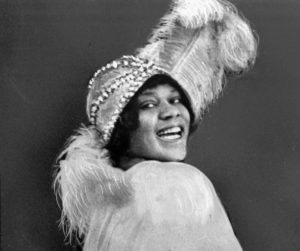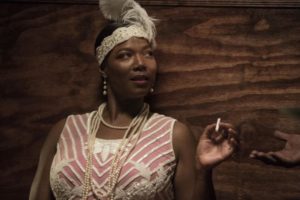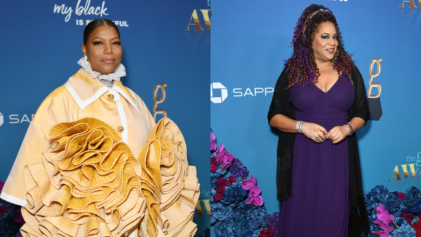
For many people, the relationship between jazz and blues can be compared to today’s relationship between hip hop and rap—it can be hard to separate one from the other in technical terms although one can always identify the difference when they hear it.
The clear blues influence that thrives in the world of jazz is largely credited to Bessie as jazz singers of the time looked to her for inspiration.
According to NPR’s Jazz Night In America host, acclaimed bassist Christian McBride, Bessie was not just an iconic blues singer. She played a major part in the creation of the genre’s modern style and sound.
The type of style she brought to the world of blues laid the foundation for the jazz singers that came after her and ultimately caused the lines between the genres to become blurred.
“[Bessie’s sound] is very much the initial sound. Bessie Smith was known as the ‘empress of the blues,’” McBride told NPR host Audie Cornish. “She was born in Chattanooga, Tenn., and Bessie Smith is the one that really brought that sort of—the modern blues sound, and Bessie Smith was pretty much the queen of that area.”
Her distinctive style includes the type of diction that was unusual for her time along with a unique “growl” that accentuated her sultry tone.
It’s a sound that was inspired by the style of gospel music at the time, according to McBride.
“She has that little growl every now and then when she says certain words, and that really kind of comes from what gospel singers were doing,” McBride added. “And someone asked the question, like, ‘what’s the difference between gospel and blues?’ I think it’s a simple word.”
The type of raw emotion and vulnerability that was associated with the early sounds of gospel are also associated with Bessie’s iconic sound in blues and now the entire genre of jazz.
“It’s the simple changing of the word ‘God’ to ‘baby’ or ‘sweetheart’ or something like that,” McBride said. “It’s the same sound, the same feel. It’s that same passion. And she was the prototype. Everyone from Billie Holiday to Ella Fitzgerald—although they weren’t known as blues singers, you can hear a lot of that—the phrasing, the diction, all of that from Bessie Smith.”
Her iconic legacy puts a lot of pressure on HBO to not only do her story justice but to also live up to the type of raw emotion and authenticity that fans of Bessie would expect to see in a film chronicling her framing of modern jazz despite the fact that she technically belonged to a different genre of music.
It will be a complicated relationship to transcend but the casting of Queen Latifah for the lead role has McBride feeling hopeful about the film’s overall authenticity.
“I’m very impressed that Latifah took this on because I certainly feel that out of all of today’s modern artists — popular artists that is — is that she would be the most well-equipped,” McBride said. “And I say that from experience, because I had a chance to work with her many times. I played on her second jazz CD called Trav’lin’ Light. People don’t even really have any clue just to how talented she really really is — and for her to take on Bessie Smith, I applaud her.”

